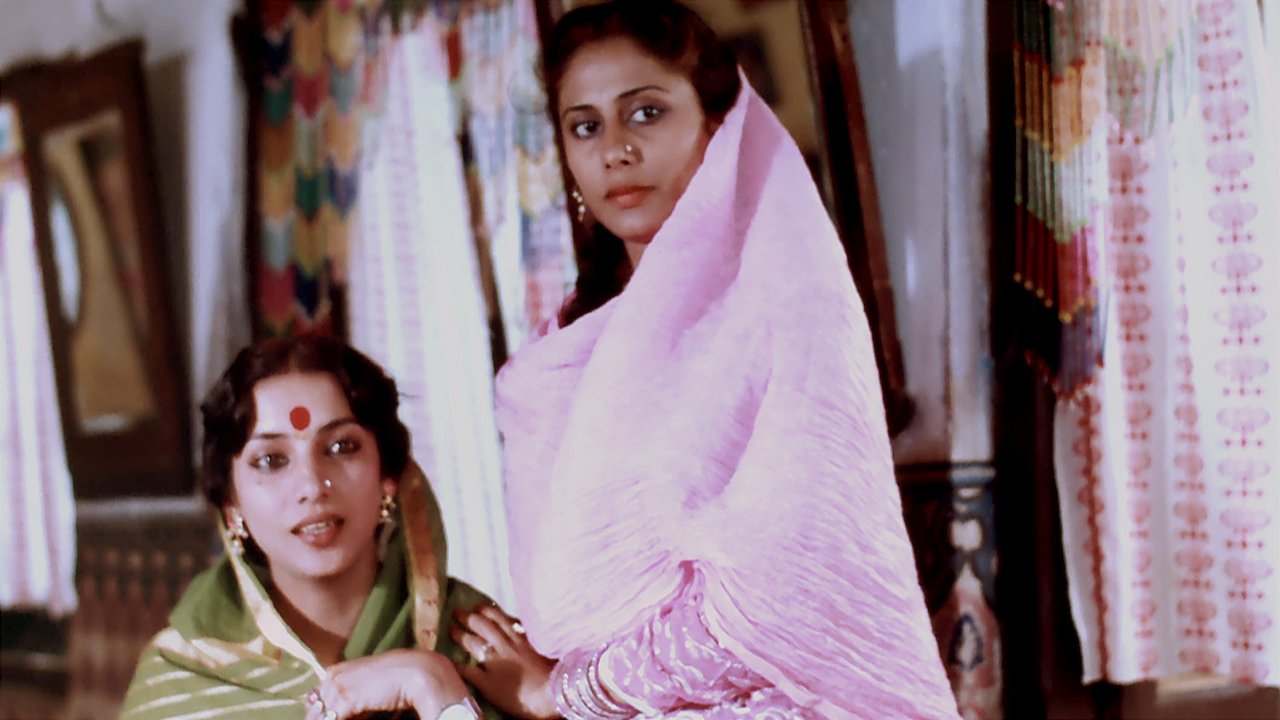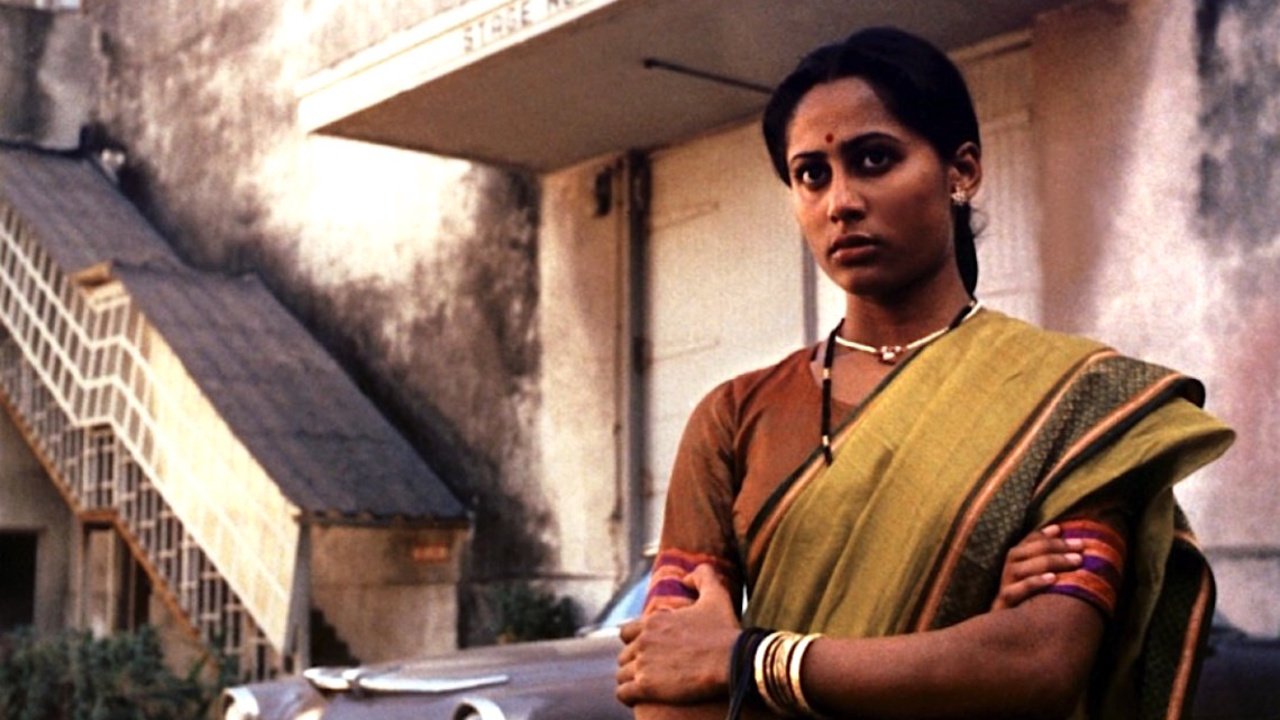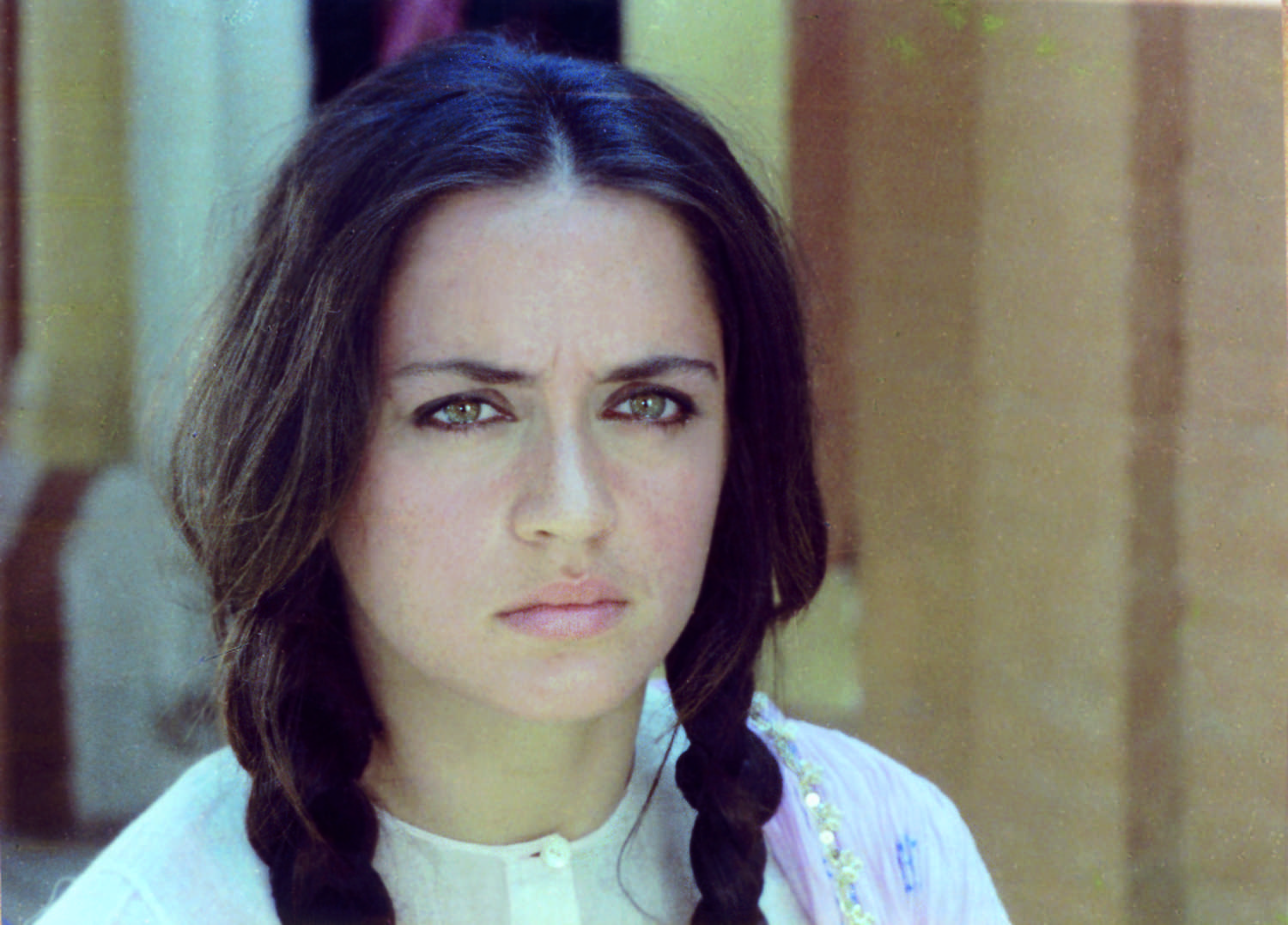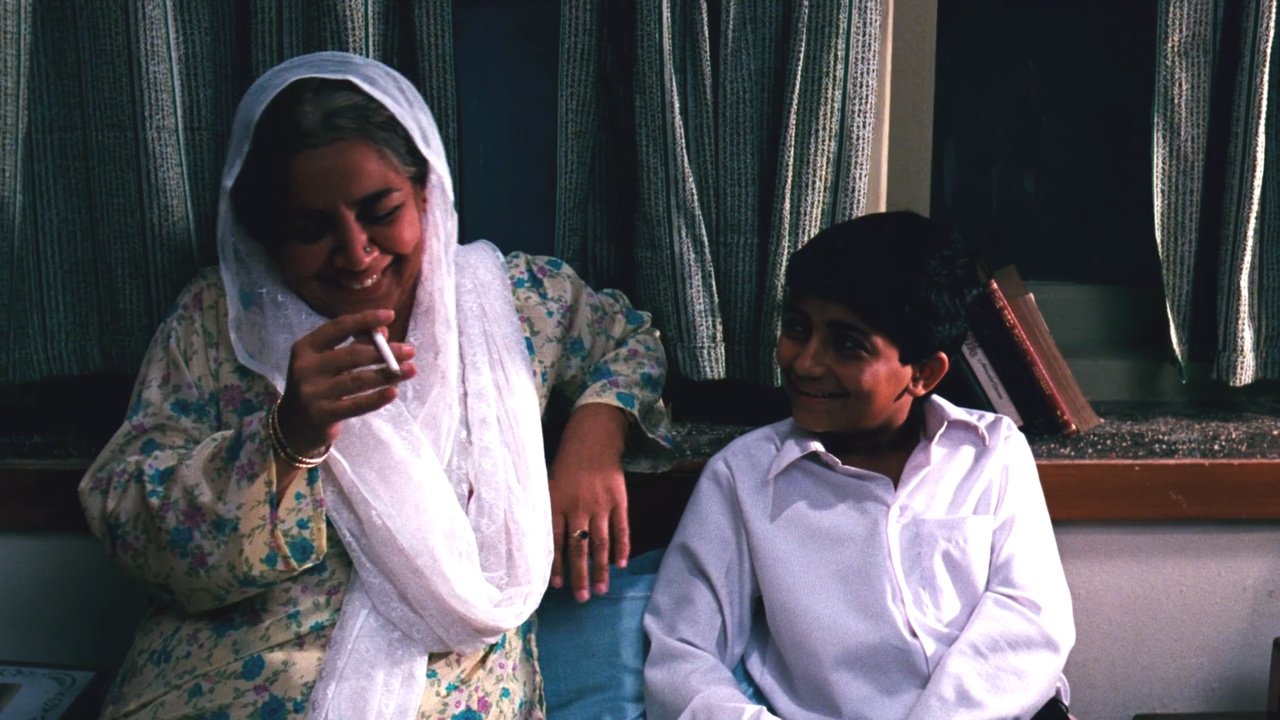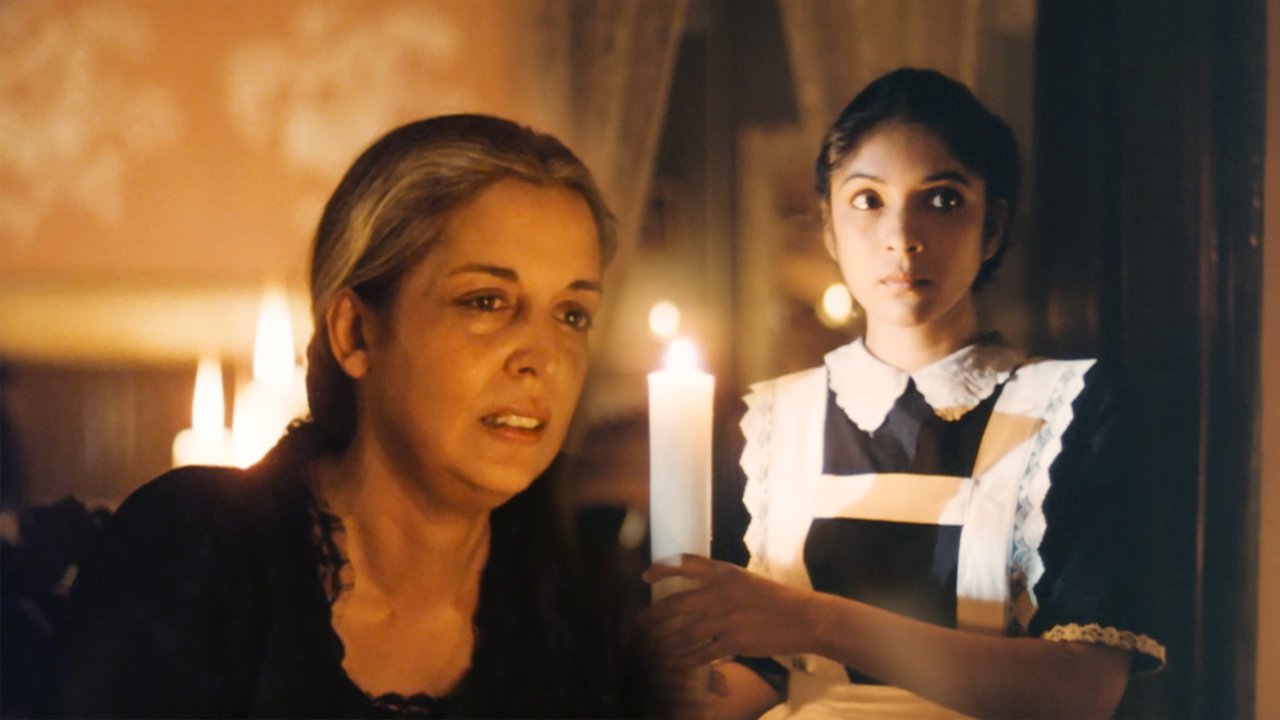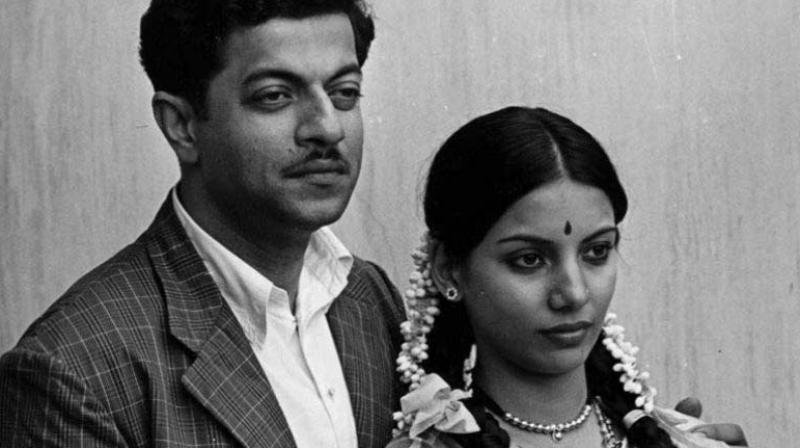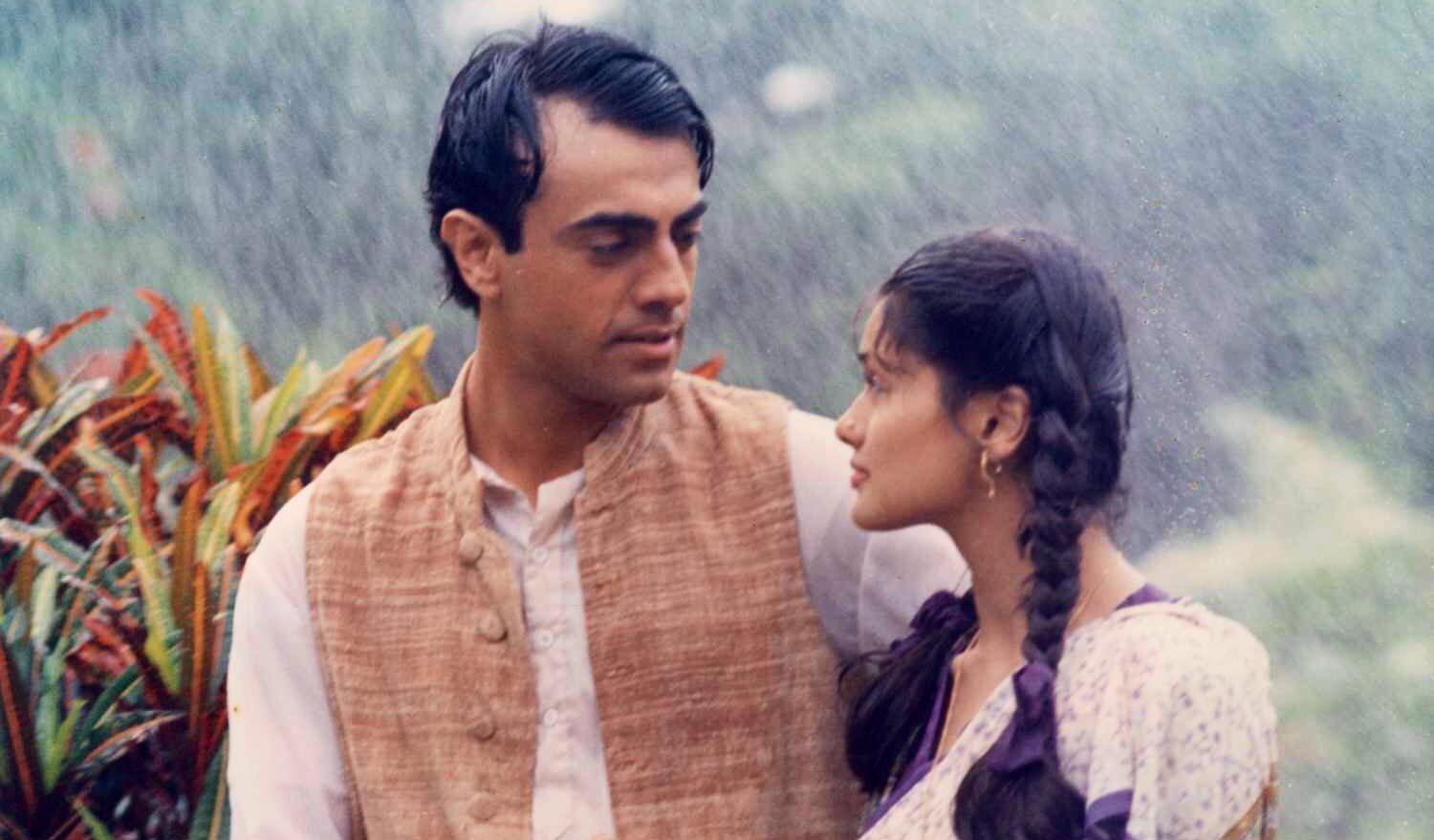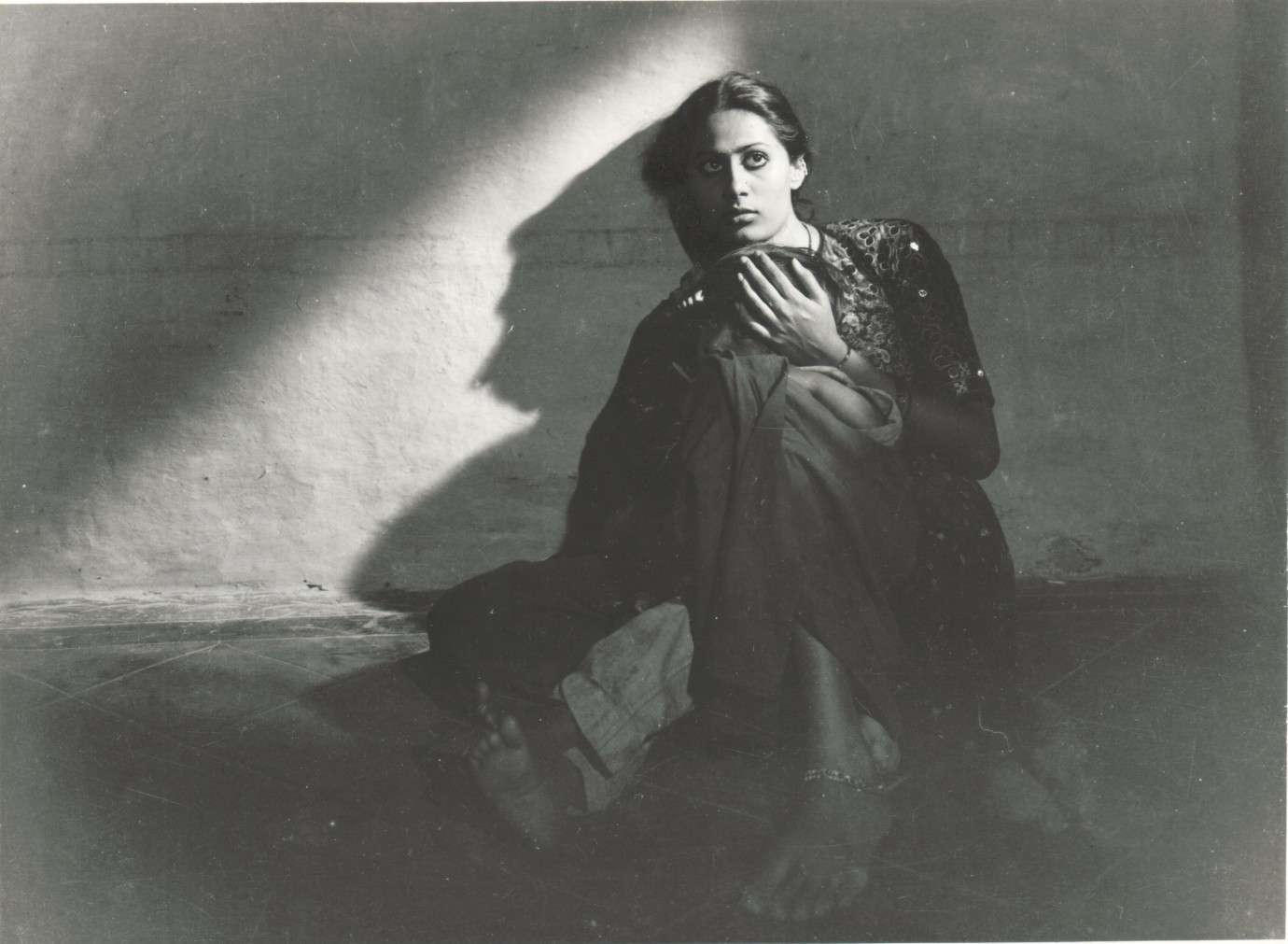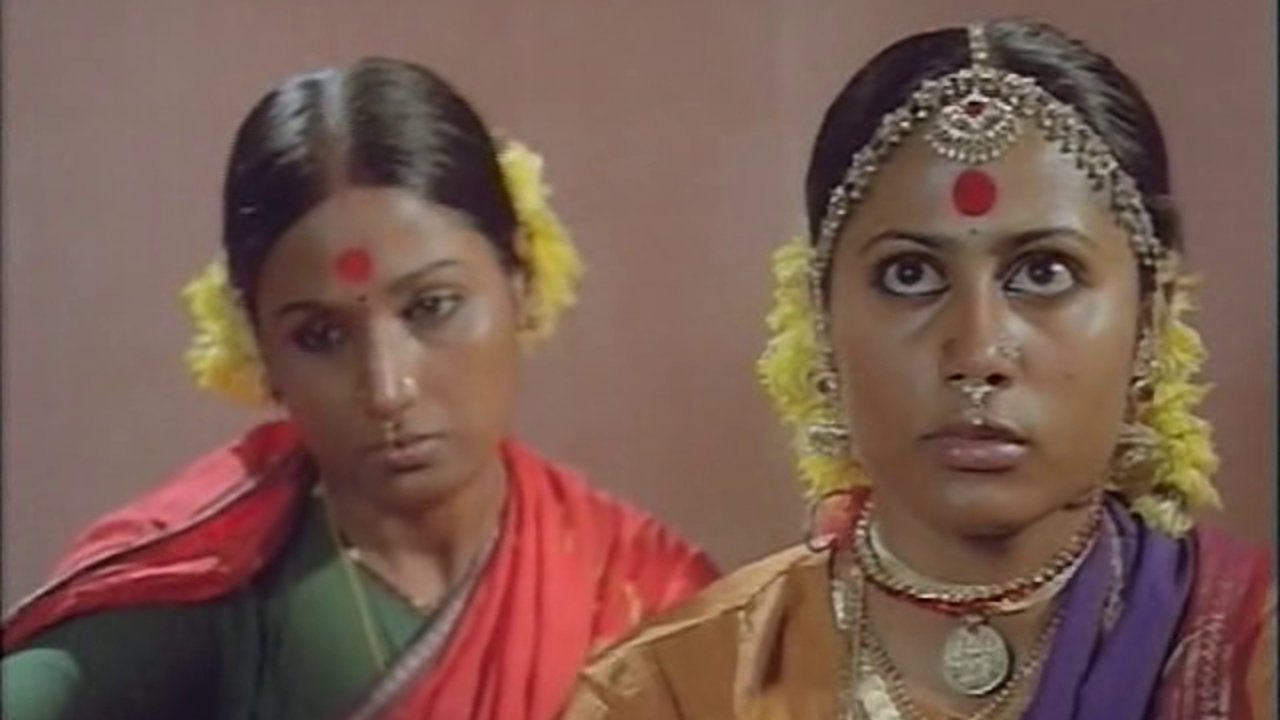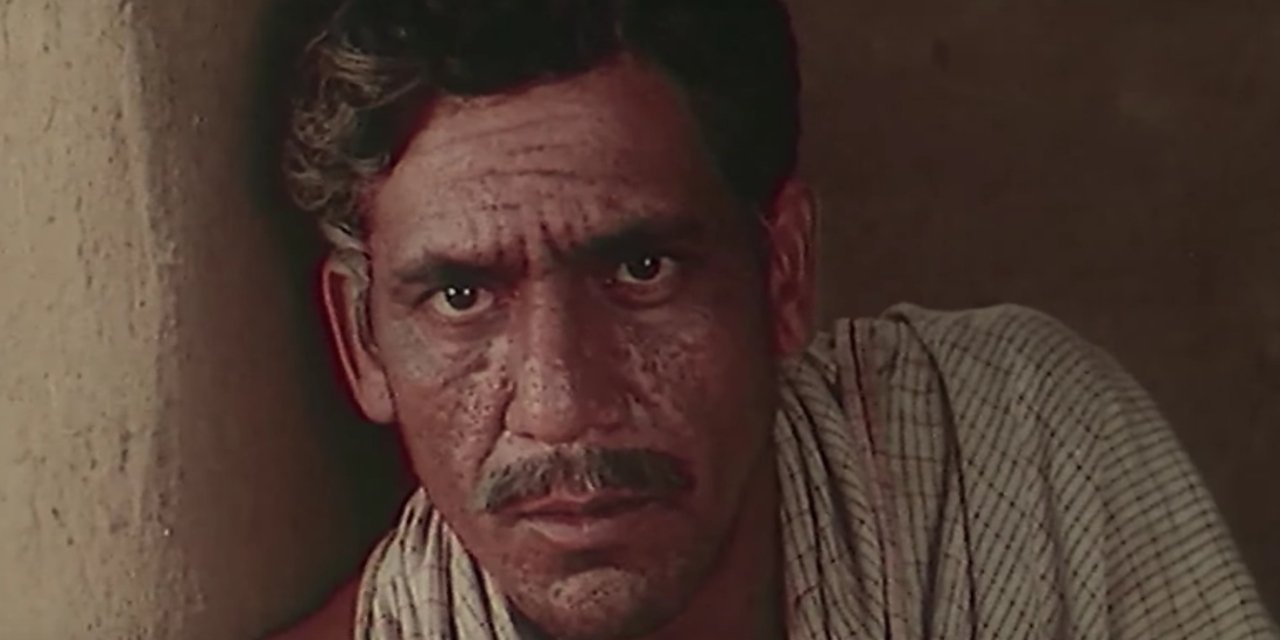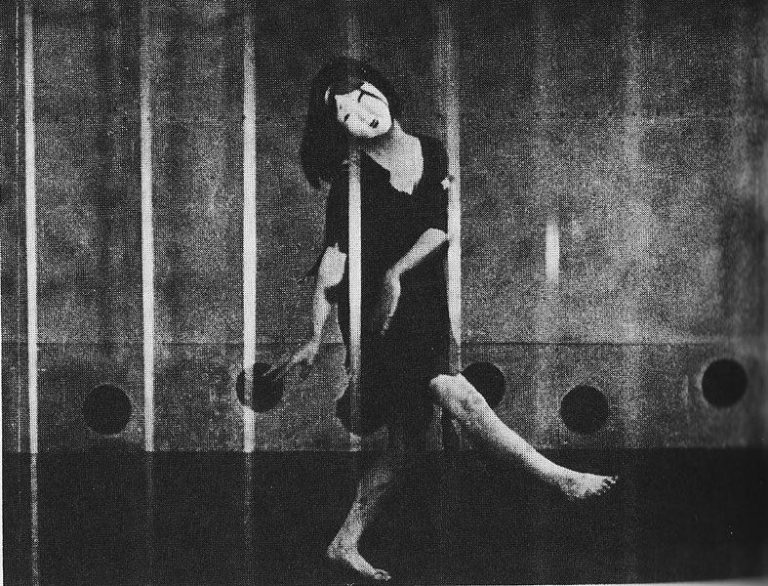Picking the best Shyam Benegal movies is an embarrassment of riches. His body of work is unprecedented for Indian cinema. My delightful dilemma was not about which ones to choose but about the ones to abandon. He interrupted Hindi film’s archetypal romance, drama, and comedy strips. Shyam Babu (as he is fondly referred to) stubbornly defied the saleable account with social pragmatism. He also spearheaded the fractures that were commencing to surface in the society due to the chaotic socio-political environment of a young nation in 1974, the year he debuted. He triggered and became the colonizer of parallel cinema in India with his path-breaking debut feature, Ankur (1974). Mr. Benegal has won seven National Awards for Best Feature Film in Hindi throughout his career!
Self-admittedly, Shyam Benegal’s style of filmmaking is heavily inspired by the works of Satyajit Ray. And if you observe closely, you could also find impressionable, massive allusions to Vittorio de Sica. But his distinctiveness remained in his spirit. He incapacitated the very notion of entertainment with his honed craft. His films are incisive, critical, and surprisingly sexual in their stance. Shyam Babu forced the audience and industry to rise above.
So here’s an attempt to pick the 10 Best Shyam Benegal Movies:
1. Mandi (1983)
Mandi (Market Place) is by far Shyam Babu’s most realized, multifarious, and seductive work. It is a supremely entertaining and trenchant commentary on society. The brothel is a character in itself with a distinguished structure. The place is filled with laughter, music, drama, depth, and secrets. The brothel has an ecosystem of its own with enchanting characters, each divergent from the other.
Anarchy has been used as a weapon here. It’s almost like a conversion to acknowledge and accept their lower standing in the chain of command. Rukmini Devi (the madame of the brothel) and her girls are blissfully unapologetic, even though they’re completely sentient of the detest they draw around them. Resent is also not a part of their wide spectrum of emotions. Mandi’s biggest strength lies in Shyam Babu’s raw and vulnerable ability to humanize and decode the residents of that brothel. His screenplay never commodifies or victimizes these women. Mr. Benegal’s glorious, eternal vision is aptly supported by cinematographer Ashok Mehta. His camera confronts the unrefined & crude reality of Rukmini’s kotha, unaccompanied by any male gaze.
Similar to Shyam Benegal Movies – Moothon [2019] Review: Searching for Hope
The ensemble cast includes some of the finest actors of Indian cinema. But, transcending them all with her towering performance is Shabana Azmi. Hers is amongst the finest performances on screen by an Indian actor ever. Shabana’s Rukmini Devi is manipulative, authoritative, motherly, melodramatic, and shrewd, and she weaponizes her sexuality to reign over men. The pallu of her saree is a character in itself, which keeps sliding down her chest on her accord. You’ll have to watch Shabana Azmi in Mandi to believe what an actor can achieve, given the right character and director. Words don’t suffice.
Mandi is also Shyam Benegal’s most explicit and audacious film to date. There are incestual and inappropriate relationships between a mother-in-law and son-in-law, and a brother unknowingly falls in love with his sister. There is even a lesbian undercurrent between Shabana Azmi and Smita Patil’s characters. But none of it makes you cringe because it’s been portrayed with such sensitivity and subtlety. It is a multi-hued, wry commentary on personal and social stigma, and Shyam Babu has given it an assorted texture with his brilliance.
Mandi is an astonishing black comedy in its most uncontaminated form. So far, only three Hindi films have achieved that feat, Jaane Bhi Do Yaaron and Dedh Ishqiya being the other two. Mandi makes you laugh; it alarms you and also permeates an aftertaste of a volatile and selfish reality. Drop everything and watch this biggest, brightest jewel in Shyam Benegal’s crown if you haven’t already.
You can watch Mandi Online on Netflix
2. Bhumika (1977)
Eons before the term ‘intersectional feminism’ could be Googled, Mr. Shyam Benegal was holding its torch in India with almost all his films. His heroines never needed a man for approval, to say the least. With Bhumika – The Role, Shyam Benegal dials the notch multifold upwards. This is his most personal and internal film. It is based on the memoirs of popular Marathi actress of the 40s & 50s, Hansa Wadkar. With Bhumika, Shyam Babu reneges on his themes. From socio-political movies concentrating on the context of the Naxalite movement to this more inward approach towards relationship conflicts, feminism, and coming-of-age drama, he clearly shifts ground here.
Smita Patil peaked with this film at the age of 22. She could never outshine this feat, even though she kept delivering great performances throughout her career. Usha is the enigma and disruption of the film. A few years later, Jabbar Patel also drew a similar exploitation with Sulabha in Umbartha. Both were played exceptionally by Smita Patil.
Shyam Benegal, along with his co-writers Girish Karnad and Satyadev Dubey, develops the protagonist with a haze of nostalgia through sepia flashbacks. The film maneuvers itself with a non-linear narrative. Though it’s Usha’s story, other characters are equally well etched out with a comprehensive arch. Men, for example, are equally layered and grey. Anant Nag, Naseeruddin Shah, Amrish Puri, and Amol Palekar all represent the composite patriarchy that has been plaguing Indian society for eternity. It’s also a testimony of writing, direction, and acting prowess that you violently hate Amol Palekar, one of the most endearing and likable actors of Indian cinema. You despise the guy; you want to spit on him every time he is on screen.
Similar to Shyam Benegal Movies – Olla [2019] Short Film Review: Women Choosing Vitality Over Victimhood
Bhumika commented on chauvinism, freedom of making choices, acceptance & submission, and the factory approach of Hindi cinema, its ‘quantity-over-quality’ filmmaking. Shyam Babu’s film-in-film technique is far more efficient here than, let’s say, in The Player (1992) by Robert Altman or 8-1/2 (1963) by Federico Fellini. And, just as successful, if not more, as in Cinema Paradiso (1988) by Giuseppe Tornatore or Elias Merhige’s Shadow of the Vampire (2000).
Shyam Babu and the producers designed the film to have a much wider commercial reach than any other feature under the New Indian Cinema movement in the 70s. While the entire nation was cast under the spell of mass entertainment and demi-gods like Amitabh Bachchan, Vinod Khanna, Hema Malini, and Zeenat Aman, etc., Mr. Benegal reached out to the audience that was craving for domicile veracity. He constructed Bhumika for the viewers who were equipped to levitate their sensibilities to his, and not the other way around.
3. Junoon (1979)
Based on Ruskin Bond’s A Flight of Pigeons, Junoon (The Obsession) is based on a true story of a seething account of the 1857 revolution. By far, it’s the most intelligent and sensitive exploration of the event on celluloid. Junoon is a very angry film. It’ll exhaust you with its passion at the end of it. There’s not one or two but 5 central characters in the film. There’s a luminous union of claustrophobia with the ambitious yet tender flashes of frightening domesticity. And you’ve only Shyam Benegal and cinematographer Govind Nihalani’s mastery to blame for this.
Junoon means obsession, and it pulsates in every frame of the movie. The film has an immaculate pedigree with Shashi Kapoor, Shabana Azmi, Naseeruddin Shah, Jennifer Kendal & Nafisa Ali on the vanguard, the unmatched Satyadev Dubey and Ismat Chugtai on the writing front, Govind Nihalani’s exceptional cinematography, and weaving them all together, is the magnificent vision of Mr. Shyam Benegal.
Related to Shyam Benegal Movies – The Reincarnation Of Indian Cinema
Early on in the film, we realize that it does not intend to attain visual opulence. Given the era of its production, budgets wouldn’t have been as exuberant as they are now. Yet the film achieves epic magnitude by the sheer conviction of Shyam Benegal. Throughout the film, he disdains realism for the theatrical, and the result is astounding. Only a sovereign of his craft can make such an audacious decision and successfully so. The essence of Junoon, is not its aggressive backdrop, or the futile love story, it’s the relationship between the women in the film. They form abrupt obligations, and sympathies shift. Though I’m not diving into the details of characters or performances here, they remain perpetually poignant.
The director & writers effectively pull out a locus classicus of Anglo-Indian relations against the all-consuming contention of 1857. The dichotomy of erotic and hostile threads of these relations is extremely stimulating. Indian period films tend to have a compelling, fantastical texture attached to them. Umrao Jaan (1981), for instance, shares its DNA with Junoon in every sense but remains affluent and plush in spite of its glum tone. Junoon is rooted, rough, and raw. Though the radiance of Junoon doesn’t lie in its grit, but in the virtuoso of Benegal and the fragility he presents his characters with.
An underseen Indian classic, Junoon is certainly one of the best movies of Shyam Benegal.
4. Mammo (1994)
Nobody and I’ll say it again, nobody adapts books, articles, and stories like Shyam Benegal. The closest someone could reach around that orb is Vishal Bharadwaj. Mammo is based on a piece written by Khalid Mohammed for publication. It depicts his real-life experiences. Shyam Babu was so enamored by the idea that he finally convinced Mohammed to make a film out of it. This alliance becomes even more interesting because Khalid Mohammed was never a fan of Benegal’s work and openly criticized even his globally acclaimed films. So now you know that it takes a very special person like Shyam Benegal to approach one of his biggest critics for collaboration.
Mammo is the story of a displaced Muslim woman, Mehmooda Begum, who doesn’t know where she belongs. Born in India, Mammo was a part of the exodus in 1947 with her husband. The couple was in a childless yet happy marriage. After her husband’s death, his family disowned her to divest her of her property. Nowhere to go, she comes to India to stay with her sister, and the movie detonates henceforth. Now, any director worth his salt would have used multiple tools to present these catastrophic, traumatic experiences through flashbacks, voice-overs, montages, dramatic background music, etc., just to give his audience a dramatic branch to hold on to. But Shyam Babu decided to trust his lead actor instead.
Mammo simply narrates what she saw and experienced, avoiding any graphic drawing of savagery. The stunning Farida Jalal deftly performs this sequence. She couldn’t afford to let her director down, who blindly relied on her refined performance. The result is extraordinary. The sensitive, frill-free recounting of her ordeal became a euphemism for the Partition’s horror.
Similar to Shyam Benegal Movies – The 10 Most Essential Pakistani Movies and where to watch them
The chapter Mammo opened in 1994 was concluded in Zubeidaa in 2001. Shyam Babu created Hindi cinema’s most authentic, pertinent, and verbatim trilogy, totally unplanned too. Mammo, Sardari Begum (1996) & Zubeidaa traverse each other at many junctions without screaming “sequel.” (Watch them chronologically. Highly recommended). Honestly, Mammo’s relevance is more salient now than when it was released in 1994. Sure, the film got its apoplexy resonation, benefitting from the post-Ayodhya texture back then. But the treacherous course we have taken in our citizenship laws in the past few months makes Mammo’s relevance far more fundamental now.
Shyam Benegal’s understated, humorous approach, without politicizing the issue, is the real force of Mammo, apart from towering performances by Farida Jalal and Surekha Sikri. The exposure to the Islamic middle-class milieu might remind you of unperturbed Majid Majidi films. Shyam Babu celebrates the non-conforming, never-say-die attitude of his aging protagonist with humor and tragedy. And while at it, don’t miss out on this haunting ghazal by Gulzar, “Hazaar Baar Ruke Hum,” voiced by Jagjit Singh. Mammo is ordinarily extraordinary.
You can watch Mammo Online on MUBI
5. Trikal (1985)
Trikal (Past, Present, and Future) is singularly one of the most important films for Indian audiences and filmmakers for multiple reasons. One is that it taps a part of Indian history that is largely anonymous to most Indians and the world. The film is set during the pre-liberation period, traveling to the last days of colonialism in India. This time, it was the Portuguese colony of Goa. Trikal takes you on a nostalgia trip through a Goa that has almost vanished now. This melancholy of the past engulfs the audience, along with the film’s characters.
The film, like Mandi and Mammo, wears a thick mask of dark humor, which has been spattered through weirdly quirky characters. But the buried grief and vulnerability are too potent to conceal. The theme of forgotten past recrudesces throughout the film. Complimenting the acting, cinematography, writing, music, art direction, and other such aspects of filmmaking in a Shyam Benegal movie is redundant. Even in his much flawed Kalyug (1981), The Forgotten Hero (2004), or Well Done Abba (2009), these facets remain immaculate.
Related to Shyam Benegal Movies – Ankhon Dekhi [2013]: Belief in what you live
Though led by Naseeruddin Shah & Leela Naidu, Trikal is primarily about the cameos. KK Raina, Kunal Kapoor, Dalip Tahil, Soni Razdan, Lucky Ali, Ila Arun, Alisha Chinai, Kulbhushan Kharbanda, Anita Kanwar (extremely enjoyable), and Neena Gupta, among others. Neena Gupta dazzles the most in, arguably, her finest role to date. Trikal is a very Goan film that lucidly enunciates the notion of making amends with your past. The movie reflects on two diametrically oppugnant social provinces—the opulence of the elite and the restraint of househelps. The latter remain mostly apathetic to the anticipation of Goan liberation, perhaps because they realize that it’s going to exclusively invade the elites. Or maybe that’s what Shyam Babu wants us to feel; there is no way to tell.
Through his work over all these years, one can easily realize the significance of the conflict between self-emancipation and civic thesis in Shyam Benegal’s life. And Trikal is no different. Each frame, every stare, passionately exudes his prevailing personal standpoints. With dark humor, a tinge of the occult, hysteria, political unrest, and, underneath it all, profound sorrow, Trikal is an institution of filmmaking, even after 35 years. It is undeniably one of the best and criminally underrated movies of Shyam Benegal.
6. Nishant (1975)
French Philosopher, Simone Weil once said, “Oppression that is clearly inexorable and invincible does not give rise to revolt, but to submission”. And it perfectly encapsulates Nishant (Night’s End) in its spirit. The film’s calm pace works in its favor because the plodding build-up sets up the stage for an exhilarating climax. Shyam Benegal explicitly condemns the feudal system in Nishant, but there’s no definitive divide between good and bad. Everyone involved is a tyrant and the subjugated, whether silent and embarrassing or vocal and blatant. It’s highly enthralling how Shyam Babu mutely submerges everyone in the painful gamut of repression.
The movie came out at a time when the world was contemplating the virtues of Collectivism against Democracy. And Benegal’s Nishant did not come an hour too soon. The film explores the idea of the rural elite’s command and the sexual victimization of women.
Also, Read – I, Tonya [2017] – A Dark Tale of Media Hysteria, Domestic Abuse, and Class Snobbery
This was Shyam Benegal’s third feature and he assorted an array of tremendously gifted actors. Naseeruddin Shah in his debut, Smita Patil’s first major film role, Shabana Azmi, Girish Karnad, Mohan Agashe, Anant Nag, and Amrish Puri (disturbingly intimidating performance) among the rest. It’s rather outrageous to witness these actors at the mercy of a director who inundates them with an aching mist of brutal and volatile drama. Shabana’s character (a deep, raw, unhinged act) makes some choices in the film that were, and perhaps still are, terrifyingly odd for Indian cinema. It is probably something Mr. Benegal wanted to investigate through Nishant back in 1975!
I read somewhere that Shyam Benegal is a weaver of celluloid realism. And it prevails. He drags us into this muddled, dirty reality of Nishant and never gives us a transom to cross-ventilate. He never uses any instrument to scheme the plot to forge ahead. In fact, you never question the flow of the story and trust me; this isn’t a story you can fantasize about. Nishant’s real potency comes through a deflated desire to have a restrained reality. Alas, reality cannot be restricted.
7. Suraj Ka Satvan Ghoda (1992)
Based on Dharmveer Bharati’s well-known work of the same name, Suraj Ka Satvan Ghoda (The Sun’s Seventh Horse) focuses on a bachelor (Manik, played with perfection by the debutant Rajit Kapur) who narrates three short stories about three women who come into his life. All three women are radically unique and represent different social strata.
Jamuna (Rajeshwari Sachdev), is an example of everyday, middle-class woman. An emotional wreck, she loves with all her heart. But her self-preservation skill set always possesses her will to love. Lily (Pallavi Joshi) represents the rich, well-educated human breed that has the means and audacity to take a stand. As we get to know her, it’s apparent that she is meant for greater things, and love isn’t one of them. Satti (Neena Gupta) embodies the lower social standing, a working-class woman who has to contest every evil eye that hovers around a single woman in our society.
The self-reflexive, Roshomon-ish film dismisses the very idea of Devdas very early on. The film echoes shifting social values and is extremely encrusted in its social commentary. But it never lets go of the strand of love and the way it steers one’s journey throughout one’s life. Suraj Ka Satvan Ghoda is Shyam Babu’s most romantic film, in spite of what it’s aiming to achieve. Each flashback is impregnated with a different trace of color and mood. But Shyam Babu holds the extra throughout, averting the contrivance.
Related to Shyam Benegal Movies – 15 Best Films to Watch on a Rainy Day
Using the non-linear narrative structure, Mr. Benegal uses multiple complex techniques, marries facts and fiction, and gradually constructs a subtext that eventually translates Manik into a manipulative, unreliable narrator. He also leaves the conclusion to the viewer. Once again, Shyam Babu does not engage in spoon-feeding his audience. He trusts his viewers to understand the undertones. Don’t sit with your tub of popcorn to watch it; you won’t be able to enjoy it either.
Suraj Ka Satwan Ghoda is a vibrant résumé of Indian folk tales interweaved with Marxist theory and the current onslaught. Shyam Benegal brings in the polarity of a campfire charm of friends sharing stories and the twinge of a vaguely remembered love tune. His narrative style adds to the obscurity. “The one who is perceived as the weakest is representative of the future and it is that horse that gives us hope to live on” – the film lives on to this philosophy. Audiences across the globe would be able to relate to the film, considering its universal theme of love. Suraj Ka Satwan Ghoda is a concoction of genres and is highly recommended.
8. Manthan (1976)
Manthan (The Churning), is undoubtedly among Shyam Benegal’s best movies but the foremost reason for me to include it in this list is the implication it has in Indian cinema, as well as in the Indian economy. So, the intriguing story goes, Shyam Benegal, along with the incomparable Vijay Tendulkar, had written a script about the White Revolution and India’s journey from a milk-deficient nation to the world’s biggest milk production force. Even the pre-production was completed, too. However, given the rather atypical nature of the subject, no producer was ready to invest their money. Benegal discussed his ordeal with Varghese Kurien, father of the White Revolution (and, of course, Amul). He suggested asking the farmers of the Amul Society for help showcasing their struggle to the entire world. And it worked!
Manthan became India’s first crowd-funded film with 5 lakh producers! Each farmer donated Rs.2 from their daily wages, and Shyam Benegal got the required budget of 1 million rupees. The film was a stupendous success at the box office. This inspiring story shows the power of collective might and should be made into a film itself! And now, coming to the movie, in its most plain sailing version, Manthan documents the inception of the milk cooperative movement in Gujarat. But, it is not as unidimensional as it sounds. The film brings forth multiple social issues like caste, gender, privilege, ethics, and morals. Shyam Babu illustrates local and human idiosyncrasies with complex precision.
Similar to Shyam Benegal Movies – The 15 Best Indian Films of 2016
The White Revolution wasn’t just a marketing shift for farmers who produced milk but also inaugurated a complete churning of social configuration. Manthan encapsulates the process with a deep, dramatic stream. Make no mistake to shrug the film off as a dull documentary of an event you’re unacquainted with. Manthan can bludgeon you with its blunt, pervasive emotional anchor and stay with you for weeks.
If you’ve observed and navigated Shyam Benegal’s work, you can easily identify the distinct flashes of his trademark dark humor throughout the film. In a hilarious scene, a villager blames the timely arrival of the train for his delay. A taunt on Indian Railways infamous incompetence! Most of us reading this belong to the privileged division and often tend to turn oblivious to the various traces of subtle societal limitations. Shyam Babu brings that out in Manthan so beautifully that you can’t help but yield to his reverence. Some might criticize the film for its apparent slow pacing or its glaring melancholy, but even with all its flaws, Manthan is a blazing triumph.
For the uninitiated, you might associate Manthan with the gorgeous song “Mero Gaam Katha Parey.”
9. Kondura (1978)
After debuting with Ankur in 1974, Shyam Benegal unleashed the avalanche of his talent on the world, year after year, relentlessly. Nishant and Charandas Chor in 1975, Manthan in 1976, Bhumika in 1977, Kondura in 1978, and Junoon in 1979! He let us breathe in 1980, and the downpour resurrected from 1981 again. With that kind of bodywork, deciding on just the 10 best Shyam Benegal movies seems unfair. I’m ingeminating this just to emphasize the ordeal I’ve gone through creating this list.
Anyway, so Kondura/Anugraham (The Sage from the Sea), is my next select. It’s a bilingual feature, shot concurrently in Hindi & Telugu, with a familiar star cast. The film revolves around a young man (Ananth Nag) who, due to some surreal encounters, comes to believe that he has been conferred with mystical powers. As the story unfolds, this windfall eventually leads to a tragedy. Based on the homonymous Marathi novel by Chintamani Khanolker, with Kondura, Mr. Benegal examines the world of religion and beliefs. But unlike his mentor, Satyajit Ray’s harsh criticism and outright dismissal of superstitious religiosity in Devi (1960) and Ganashatru (1990), or even the intellectual stand of Vijay Anand’s Guide (1965), Shyam Babu is far more equitable here. He is still hopeful for positivity. Kondura is a coherent narrative of the convolutions of religion and also the urgent need for its liberal perspective.
Similar Shyam Benegal – Ram Ke Naam [1992] Documentary Review – A Cop-out take on 1992 Riot
There’s no clear indication as to where the film stands in its viewpoint on religious beliefs. Shyam Babu is not conjecturing nor expecting his audience to do so. The only thing he is denunciating here is the surplus vulnerability in celestial manifestation which often results in crushed hopes. Notwithstanding the fear of being overdramatic, Shyam Babu, along with his long-time collaborators, musician Vanraj Bhatia, cinematographer Govind Nihalani, and co-writer Girish Karnad, has managed to normalize local apocalypses in Kondura, almost as if they were essential.
Shyam Babu’s women craft their own corridor, albeit toxic masculinity. The power of Smita Patil’s refutation for the camera and Vanisri’s roaring emotional nudity outstrips Kondura to unexpected territory. Amrish Puri’s threatening personality makes the titular character more palpable. And Ananth Nag’s highly internalized performance overwhelms you. Like every Shyam Benegal film, Kondura maneuvers at a tranquil pace, yet its surreal, abstract narrative evokes a sense of creepy urgency. Kondura demands your endurance, attention, and an amenable mind.
10. Arohan (1982)
Okay, so I have a confession to make. Arohan (The Ascent) is the last-minute inclusion to this list. And it consequently snubs out Shyam Benegal’s debut film Ankur (1974). I’m equally mad at myself as you are right now but hear me out first. As I’ve already mentioned, Shyam Benegal triggered the wave of New Indian Cinema, or parallel cinema, so to say, with his avant-garde Ankur. That film refashioned and revolutionized Indian cinema’s paradigm. Things shifted. Ankur overwhelmed audiences across the globe and is one of the most celebrated and acclaimed movies of Shyam Benegal, and deservingly so. It invariably finds itself integrated into every list of movies, discussing almost any aspect of filmmaking. So, it was an obvious choice for me, too, to include it in the 10 best Shyam Benegal movies.
But by the time I reached down to it, I realized that I’d be repeating everything that had already been said about Ankur. In addition, I would have to abandon one of the most underrated and lesser-known movies of Mr. Shyam Benegal. It would and should be a felony to deprive the world of this piece of art, which is proportionately effective, if not more, than Ankur.
Arohan chronicles the life of a poor farmer, Hari Mondal, living in a remote Bengal village with his immediate and extended family. The movie is set in the mid-60s when the Naxalbari revolt was engulfing Bengal. People who believed in Marxism and a socialistic consensus took charge and empowered oppressed farmers across the state. Given the subject matter, the fabric of the film is excruciatingly morose and holds the power to suck your spirit. But hang in there; it’s one of the most imperative movies in the history of Hindi cinema.
Similar to Shyam Benegal Movies – Asuran [2019] Review – A Viscerally Intense Drama on Caste Discrimination
Shyam Babu’s rendering is awfully raw and real. You eat, breathe, sleep, cry, laugh, and live with the Mondal family. Like all his other films, Arohan’s subtexts are exhausting. But as Rudyard Kipling said, “the glory of the garden lies in more than meets the eye”. He cautiously tabulates the devastation of poverty. Arohan is an ethical and artistic account of Hari Mondal’s journey to justice. The burning Calcutta High Court scene is so haunting that, in all probability, it will latch on to you and feed off of your ignorance.
Arohan is not without its flaws. The narrative feels lethargic in places, and some vital characters are a little underdeveloped. However, Om Puri’s soaring National Award-winning performance never leaves out of your grasp. It is the best performance of Om Puri to date. Yes, scaling even higher than Ardh Satya (1983) where there’re multi-dozen references of an angst-ridden policeman in cinema, across the globe. Hari Mondal was his own.
The movie has a very unique and anomalous beginning. It’s as if Mr. Benegal is preparing you for this experience that might scratch at your heart and leave a permanent mark. It is Shyam Benegal’s most disturbing movie to date. Amusingly, Arohan was produced by the Government of West Bengal. So inevitably, one would wonder if there were any impediments to creative freedom due to the political exigency of the producer. I hope not; wishful thinking.
Arohan was never officially released in India.

